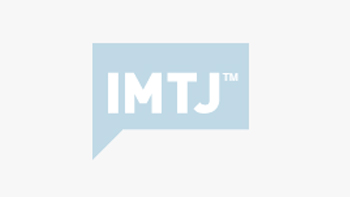Health tourism has been a strong selling point for Thailand, focusing not only on Bangkok but also other areas with a high concentration of foreign tourists, such as Pattaya, Hua Hin, Chiang Mai, Samui and Phuket.
Health tourism has been a strong selling point for Thailand, focusing not only on Bangkok but also other areas with a high concentration of foreign tourists, such as Pattaya, Hua Hin, Chiang Mai, Samui and Phuket.
Zadok Lempert of Medico Management & Travel Services International says, “The good exchange rates between the Thai baht and the US dollar or euro make medical treatment an outstanding value-for-money service for foreign patients. For example, average treatment costs in Singapore are 5-20% higher than in Thailand. Cheaper medical costs mean family members and friends will have more money to accompany the patient. They can find accommodation near the hospital.”
However, Dr Lempert argues that Thai medical tourism lacks good marketing and promotion as co-operation between hospitals and travel agents is limited,” Travel agents view the 3-6% commission rates offered by hospitals as too low while hospitals are confident that they already have their own markets and need not depend much on medical tourism agents. Only six to eight hospitals in Thailand are serious about medical tourism but the number should increase in the future. Language skills of hospital staff are another obstacle.”
Some in Thailand forecast that 1.4 million medical tourists will visit Thailand for treatment this year, up from 1.2 million in 2009. Popular treatments are hip and knee operations, cosmetic surgery and dental services. Other local figures suggest the number of foreign patients in Thai hospitals has grown from 500,000 in 2001 to 1.4 million in 2006. Some websites promoting Thailand argue that it had 750,000 American medical tourists in 2009 and Thailand will have 6 million medical tourists in 2010.There are significant doubts surrounding these claims by those who argue that hospitals counting visits rather than actual patients, and other distorting factors, artificially inflate the figures. Either way, these are not official figures, just widely used estimates.
Many countries have two separate figures, one for medical tourism, and one for health and wellness tourism. Including the latter is a nightmare for statisticians: do you count a tourist who goes to a spa-hotel as a medical tourist or a holidaymaker? Thailand has 743 spas, half of which are hotel/destination spas.
The health tourism figures include those going to:
• Hospitals – conventional medicine, invasive treatments, state-of-the-art technology
• Wellness and Spa – complementary medicine, traditional natural preventive medicine, organic additives addressing the mind, body and soul
• Destination spas – body and mind treatment backed with medical knowledge and hydrotherapy tubs, wet-rooms, steam baths, sauna, therapeutic message, etc.
The Tourism Authority of Thailand says that Thailand attracts 14 million visitors a year. The majority are leisure and business travellers. The current country distribution of visitors coming to Thailand with the primary motive of healthcare, according to the Tourism Authority is:
• U.A.E – 43.6%
• Qatar – 8.9%
• Oman – 6.0%
• Japan – 5.3%
• Myanmar – 5.0%
• Bangladesh – 3.6%
• U.S.A – 2.5%
• U.K – 2.5%
• Germany 1.2%
• France 1.1%
• Australia – 1.0%
• Canada – 0.8%
• Others 18.5%
Thai tourism bodies have recently been heavily promoting the potential in the Middle East, and their own figures suggest Americans and Europeans are increasingly nervous of the continuing political unrest and violence. The latest recommendation from the UK’s Foreign and Commonwealth Office is: “We currently advise against all travel to some specific areas of Thailand and all but essential travel to other specific areas of Thailand. The situation in Thailand remains volatile. British Nationals should exercise extreme caution throughout the country.”
The Thai Government invoked the Internal Security Act and implemented additional security measures, but the situation worsened. Thailand declared a state of emergency in the capital, Bangkok, after protesters stormed the grounds of parliament, forcing government ministers to flee by helicopter. Agencies sending patients to Thailand need to check what is happening daily.








 ©2024 All rights reserved LaingBuisson
©2024 All rights reserved LaingBuisson 


